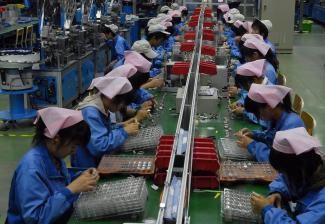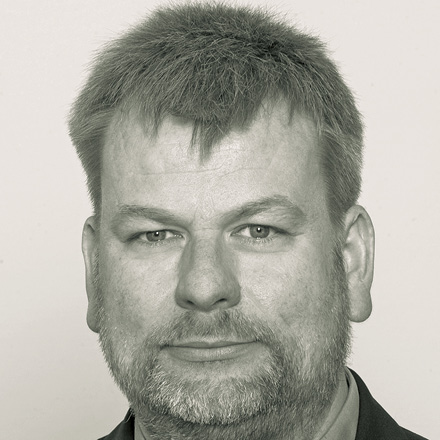Technology
Assessing global costs

One generation of smartphones, laptops and other electronic devices is fast replaced by the next. The operating life cycle of technology products is becoming shorter. Producers try to supply the market with new products faster and faster. According to the non-governmental China Labour Watch, the ones to suffer most because of high production pressures are the workers who are physically and psychologically exploited by the manufacturing companies. Eleven-hour shifts are common in IT production sites, many of which are located in the People’s Republic of China. Sleeping disorders, social isolation and a lack of privacy are serious issues, and some workers even commit suicide. China Labour Watch also notes many cases of clinical depression.
Violations of rules concerning occupational health and safety are almost never brought before courts, according to China Labour Watch. The organisation is monitoring IT producers through undercover controls and has recorded severe violations of fundamental rights. It also operates telephone hotlines, so workers can report rule violations. China Labour Watch claims that such complaints have led to negotiations with company managers and delivered results. The idea is to improve matters at the factory level.
That is not enough, however. Kavin Slaten of China Labour Watch stresses that workers must get better education and be allowed to organise in trade unions to strengthen their rights in the long run.
Niclas Rydell insists that buyers of IT hardware have a responsibility. He works for TCO Development, another international NGO, which certifies IT products according to environmental and social criteria. This seal of approval is issued to companies that accept all conditions defined by TCO and implement the required standards in their entire value chain, not only in their own operations, as Rydell told a conference on socially responsible IT procurement in Schwerin in February. The Conference was organised by German civil-society organisations with support from ENGAGEMENT GLOBAL. In March, TCO will publish a report on the performance of the 17 major IT producers in regard to social and environmental sustainability.
In the eyes of Dirk Damerow from Dataport, certificates are not sufficient. Dataport is a private firm that coordinates IT tenders on behalf of five German Länder (sub-national states). Dataport demands that suppliers submit detailed information on social and environmental matters as well as compliance with standards. Like TCO, Dataport takes into account the entire value chain.
Hazardous waste
Even if they procure IT hardware in a fair way, public agencies and private-sector companies need to consider other issues as well, demands Cornelia Heydenreich from Germanwatch, an NGO. Waste management matters too, for instance. According to Heydenreich, 48 million tons of electronic waste are created worldwide every year. Only 25 % of this waste is properly recycled and disposed, even though all digital devices include toxic substances.
From Germanwatch’s point of view, future waste must be considered before buying IT hardware. Special attention should be paid to reparability, long lifecycles and modular design, so parts can be replaced. Spare parts, moreover, should be guaranteed to be available for at least five years after the purchase, and sellers should be obliged to take back old devices for free.
Christina Stobwasser















